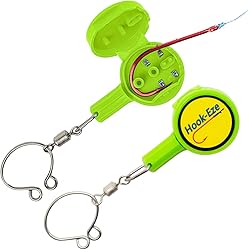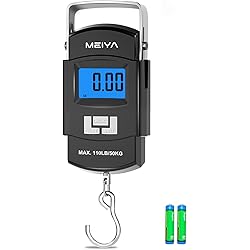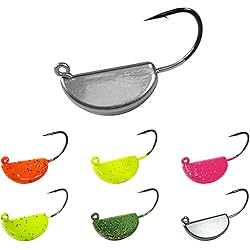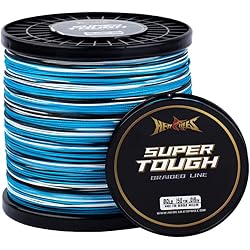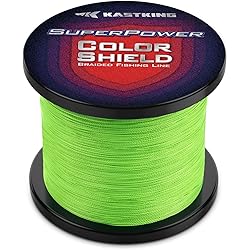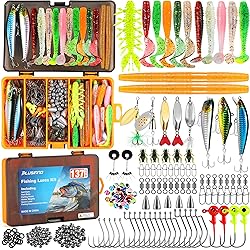Is Freshwater Fish Safe to Eat? Freshwater fish is a staple in many diets worldwide, known for its delicate flavors and nutritional benefits. However, concerns about safety, including contaminants, parasites, and sustainability, often arise.
Freshwater fish can accumulate pollutants such as mercury and pesticides, particularly in polluted waters, posing potential health risks.
Additionally, parasites like tapeworms can be present, making proper cooking essential. Despite these concerns, freshwater fish offers numerous health benefits, including high-quality protein and essential omega-3 fatty acids.
To ensure the fish you consume is safe and nutritious, choose sources from reputable suppliers who adhere to safety and sustainability standards.
Look for certifications that guarantee responsible fishing practices and regular testing for contaminants.
It’s important to handle and cook fish properly: make sure it reaches an internal temperature of 145°F (63°C) to eliminate parasites and minimize risk.
You can enjoy the nutritional benefits of freshwater fish while minimizing health risks and supporting sustainable practices if you are informed
Fly Fishing Rod and Reel Combo Starter Kit

Health Benefits of Freshwater Fish
Nutritional Value
Freshwater fish are rich in essential nutrients, including high-quality proteins, omega-3 fatty acids, vitamins, and minerals. These nutrients contribute to various health benefits, such as:
- Heart Health: Omega-3 fatty acids help reduce the risk of heart disease by lowering blood pressure, reducing triglycerides, and decreasing the risk of abnormal heart rhythms.
- Brain Health: DHA, a type of omega-3 fatty acid found in fish, is crucial for brain development and function. Regular fish consumption is associated with a lower risk of cognitive decline and improved memory.
- Bone Health: Fish provide essential vitamins like D and B2 (riboflavin), as well as minerals like calcium and phosphorus, which are vital for maintaining healthy bones and teeth.
Popular Freshwater Fish Species for Consumption
Several freshwater fish species are popular for their taste and nutritional value. Some commonly consumed species include:
- Trout: Known for its delicate, mild flavor, trout is rich in omega-3 fatty acids.
- Catfish: With a firm texture and mild taste, catfish is a versatile option that is low in calories and high in protein.
- Tilapia: A mild-flavored, white-fleshed fish that is low in fat and high in protein, making it a popular choice for healthy meals.
- Bass: Both largemouth and smallmouth bass are favored for their mild, slightly sweet flavor and firm texture.
- Perch: With its sweet taste and flaky texture, perch is a favorite among freshwater fish enthusiasts.

Potential Risks of Consuming Freshwater Fish
While freshwater fish offer numerous health benefits, including high-quality protein and essential nutrients, there are potential risks associated with their consumption.
One major concern is contamination. Freshwater fish can accumulate pollutants from polluted water sources, such as mercury, PCBs, and pesticides.
These contaminants can pose health risks, particularly if consumed in large amounts or over extended periods.
Parasites also present a risk. If you don’t properly cook or handle freshwater fish, parasites like tapeworms and roundworms can cause gastrointestinal issues and other health problems.
Environmental factors also contribute to these risks. Fish from polluted or heavily industrialized areas may have higher levels of contaminants.
Additionally, unsustainable fishing practices can affect fish populations and ecosystems, leading to further environmental concerns.
To mitigate these risks, it’s essential to source fish from reputable suppliers, follow safe cooking practices, and stay informed about local water quality and fish advisories.
Balancing the benefits and risks of freshwater fish consumption can help you enjoy their health benefits while minimizing potential hazards.
Contaminants
Freshwater fish can be exposed to various contaminants, including heavy metals, pesticides, and industrial chemicals. The most concerning contaminants are:
- Mercury: This toxic metal can accumulate in fish tissues, posing health risks, particularly to pregnant women, nursing mothers, and young children. High levels of mercury can affect the nervous system and cognitive development.
- PCBs (Polychlorinated Biphenyls): Industrial chemicals that persist in the environment and accumulate in fish. PCBs have been linked to cancer and adverse effects on the immune, reproductive, and nervous systems.
- Dioxins: Toxic compounds resulting from industrial processes. Long-term exposure to dioxins is associated with an increased risk of cancer and developmental problems.
Parasites
Freshwater fish can harbor parasites, such as tapeworms and roundworms, which can pose health risks if not properly handled and cooked. Some common parasites include:
- Anisakis: A type of roundworm that can cause anisakiasis, a gastrointestinal infection with symptoms like abdominal pain, nausea, and vomiting.
- Diphyllobothrium latum: Also known as the fish tapeworm, it can cause diphyllobothriasis, leading to digestive issues and vitamin B12 deficiency.
Environmental Factors
Environmental pollution, habitat destruction, and climate change significantly impact the safety and sustainability of freshwater fish populations.
Pollution from industrial runoff, agricultural chemicals, and plastic waste contaminates water bodies, introducing toxins like heavy metals and pesticides into the fish habitat.
Habitat destruction due to deforestation, urbanization, and dam construction disrupts ecosystems, reducing fish populations and biodiversity.
Climate change worsens these issues by altering water temperatures and precipitation patterns, which can impact fish breeding cycles and food availability.
Water quality has a critical influence on fish health. Contaminated water can lead to the bioaccumulation of harmful substances in fish tissues, making them unsafe for consumption.
Harmful algal blooms, fueled by nutrient pollution and warmer temperatures, produce toxins that can cause fish kills and pose serious health risks to humans who consume affected fish.
Ensuring the safety of freshwater fish involves addressing these environmental challenges through pollution control, habitat restoration, and climate mitigation efforts.
Sustainable fishing practices and responsible aquaculture can also help maintain healthy fish populations. Protecting freshwater ecosystems allows us to protect the quality and safety of the fish we consume.
Fly Fishing Rod and Reel Combo Starter Kit
Is Freshwater Fish Safe to Eat?

Ensuring the Safety of Freshwater Fish
To mitigate the risks associated with consuming freshwater fish, it is essential to follow best practices for sourcing, handling, and preparing fish.
Sourcing Safe Freshwater Fish
- Know Your Source: Purchase fish from reputable suppliers who adhere to food safety regulations and sustainable fishing practices. Look for certifications such as the Marine Stewardship Council (MSC) or Aquaculture Stewardship Council (ASC) to ensure responsible sourcing.
- Local Guidelines: Follow local advisories and guidelines regarding fish consumption, especially in areas prone to contamination. Local health departments often provide information on safe fish species and recommended consumption limits.
Handling and Preparing Freshwater Fish
- Proper Storage: Store fish at the correct temperature to prevent spoilage. Fresh fish should be kept in the refrigerator at or below 40°F (4°C) and consumed within 1-2 days. Frozen fish should be stored at 0°F (-18°C) or lower.
- Thorough Cooking: Cook fish to an internal temperature of 145°F (63°C) to kill harmful parasites and bacteria. Ensure that the fish is opaque and flakes easily with a fork.
- Avoid Cross-Contamination: Use separate cutting boards and utensils for raw fish and other foods to prevent the spread of contaminants.
Sustainable and Safe Fish Farming
- Aquaculture: Sustainable aquaculture practices can provide a reliable source of safe freshwater fish. Look for farmed fish that adhere to environmental and health standards, minimizing the use of antibiotics and chemicals.
- Water Quality Management: Ensure that farmed fish are raised in clean water environments, free from pollutants and contaminants.

Conclusion
Freshwater fish can be a delicious and nutritious addition to your diet, offering numerous health benefits from high-quality proteins and essential nutrients.
These benefits include improved heart and brain health thanks to omega-3 fatty acids, as well as better bone health due to vitamins and minerals.
However, it is critical to be aware of potential risks, such as contaminants like mercury, PCBs, and parasites that can be harmful if not properly handled.
By following best practices for sourcing, handling, and cooking freshwater fish, you can enjoy these aquatic delicacies safely and responsibly.
Purchase fish from reputable suppliers, follow local advisories on safe consumption, and ensure proper storage and thorough cooking to kill any harmful bacteria or parasites.
Avoid cross-contamination by using separate utensils for raw fish. Always stay informed about local guidelines and advisories to minimize the risk of contaminants.
Additionally, consider sustainable choices, such as fish from responsible aquaculture practices, to support the health of both your family and the environment.
With these precautions, you can savor the taste and health benefits of freshwater fish while minimizing potential risks.
Frequently Asked Questions (FAQs)
Is it safe to eat freshwater fish during pregnancy?
Yes, but with caution. Pregnant women should avoid fish with high mercury levels, such as certain species of tuna and swordfish. Instead, they can consume low-mercury freshwater fish like trout and catfish, following local advisories and guidelines.
How often should I eat freshwater fish?
The FDA recommends consuming 2-3 servings of fish per week, including a variety of species to balance nutritional benefits and minimize the risk of contaminants.
Can freshwater fish cause food poisoning?
Yes, consuming raw or undercooked freshwater fish can lead to food poisoning from bacteria or parasites. Always cook fish thoroughly to reduce this risk.
What is the safest way to cook freshwater fish?
Baking, grilling, steaming, and frying are safe cooking methods, provided the fish reaches an internal temperature of 145°F (63°C). Avoid consuming raw or partially cooked fish to prevent foodborne illnesses.
Are there any freshwater fish to avoid eating?
Certain fish species may have higher levels of contaminants. Local health advisories often provide information on species to avoid or limit. Generally, larger, predatory fish tend to accumulate more contaminants.
How can I tell if freshwater fish is fresh?
Fresh fish should have a mild scent, firm flesh, and clear, bright eyes. Avoid fish with a strong, fishy odor, dull eyes, or slimy texture, as these are signs of spoilage.
Hooked on Tech: Exploring the latest Fishing Gadgets that Anglers swear by.
In the realm of angling, where tradition and technology often converge, a new wave of fishing gadgets has emerged, transforming the way anglers approach their craft.
From advanced fish finders to smart bait systems, these innovations have not only revolutionized the fishing experience but have also garnered a loyal following among anglers worldwide.
Mini Fishing Kits Bulk for Kids Small Survival Fishing Kit Portable Fishing Tackle Fishing Accessories Fishing Gear with Case for Beginner Operation Christmas Shoebox Stocking Stuffer Gift
$112.99 (as of November 19, 2025 01:21 GMT +00:00 – More infoProduct prices and availability are accurate as of the date/time indicated and are subject to change. Any price and availability information displayed on [relevant Amazon Site(s), as applicable] at the time of purchase will apply to the purchase of this product.)FXOICMI 3 Claw Fish Gripper, Metal Fishing Pliers Gripper, Non-Slip Fish Grabber Tool, Multifunctional Fish Grips Clamp for Catch and Release, Lightweight Fishing Accessories
$6.99 (as of November 18, 2025 02:18 GMT +00:00 – More infoProduct prices and availability are accurate as of the date/time indicated and are subject to change. Any price and availability information displayed on [relevant Amazon Site(s), as applicable] at the time of purchase will apply to the purchase of this product.)SKYSPER Tackle Backpack Fishing Bags with Rod Holder, 40L Water-Resistant Tackle Box Storage Bag for Fishing Gear Lures(Black)
$48.14 (as of November 18, 2025 22:28 GMT +00:00 – More infoProduct prices and availability are accurate as of the date/time indicated and are subject to change. Any price and availability information displayed on [relevant Amazon Site(s), as applicable] at the time of purchase will apply to the purchase of this product.)Dr.meter Fish Scale Luggage Scale Fishing Gear – 110lb Backlit LCD Display Digital Scale with Built-in Measuring Tape – Fishing Scale with 2 AAA Batteries, Pocket Size – Fishing Gifts for Men
$8.99 (as of November 18, 2025 04:58 GMT +00:00 – More infoProduct prices and availability are accurate as of the date/time indicated and are subject to change. Any price and availability information displayed on [relevant Amazon Site(s), as applicable] at the time of purchase will apply to the purchase of this product.)2 Packs Upgrade 2/3 Claw Fish Gripper, Metal Fishing Pliers Gripper Catch Fish Control Clamp, Three Teeth Fishing Pliers Control Forceps Fishing Accessories for Most Freshwater Fish Grip Tackle Holder
$18.99 (as of November 18, 2025 02:18 GMT +00:00 – More infoProduct prices and availability are accurate as of the date/time indicated and are subject to change. Any price and availability information displayed on [relevant Amazon Site(s), as applicable] at the time of purchase will apply to the purchase of this product.)Fishing Tool Set, Fishing Gear – Corrosion Resistant Fishing Pliers, Fillet Knife, Fishing Scissors, Fish Lip Gripper, Tool Retractor, Keychain Bottle Opener, Fishing Gifts for Men
$39.99 (as of November 18, 2025 22:28 GMT +00:00 – More infoProduct prices and availability are accurate as of the date/time indicated and are subject to change. Any price and availability information displayed on [relevant Amazon Site(s), as applicable] at the time of purchase will apply to the purchase of this product.)BasicGear Fishing Fillet Knife and Multi-Tool Scissors Set – 7” 440C Stainless Steel Fillet Knife with Non-Stick Blade, Multi-Tool Scissors with Serrated Blades, Rust-Resistant
$19.90 (as of November 18, 2025 16:24 GMT +00:00 – More infoProduct prices and availability are accurate as of the date/time indicated and are subject to change. Any price and availability information displayed on [relevant Amazon Site(s), as applicable] at the time of purchase will apply to the purchase of this product.)MOREFISHING Fishing Pliers,Saltwater Resistant Fishing Gear,Fly Fishing Tools Set,Hook Remover Split Ring,Ice Fishing Gifts for Men
$19.99 (as of November 18, 2025 02:23 GMT +00:00 – More infoProduct prices and availability are accurate as of the date/time indicated and are subject to change. Any price and availability information displayed on [relevant Amazon Site(s), as applicable] at the time of purchase will apply to the purchase of this product.)3 Claw Fish Gripper, 2024 Upgraded Metal Fishing Pliers Gripper, Multifuctional Fish Grippers for Fishing, Fish Grabber Tool for Most Freshwater Fish and Crab
$8.99 (as of November 18, 2025 02:18 GMT +00:00 – More infoProduct prices and availability are accurate as of the date/time indicated and are subject to change. Any price and availability information displayed on [relevant Amazon Site(s), as applicable] at the time of purchase will apply to the purchase of this product.)Goture Fishing Tool Kit, Fishing Pliers, Fillet Knife with Sheath, Fish Lip Gripper, Fish Hook Remover, Lanyard, Line Scissors, Sharpener, Stainless Steel Soap, Saltwater Gear Kit, Gifts for Men
$35.99 (as of November 18, 2025 16:24 GMT +00:00 – More infoProduct prices and availability are accurate as of the date/time indicated and are subject to change. Any price and availability information displayed on [relevant Amazon Site(s), as applicable] at the time of purchase will apply to the purchase of this product.)HOOK-EZE Fishing Knot Tying Tool | Protect from Fish Hooks | Tie Fishing Knots Easily | Cool Gadgets for Fishermen | Ice Fly Fishing | Fishing Accessories for Beginner Anglers | Nail Knot Tool
$13.99 (as of November 18, 2025 04:58 GMT +00:00 – More infoProduct prices and availability are accurate as of the date/time indicated and are subject to change. Any price and availability information displayed on [relevant Amazon Site(s), as applicable] at the time of purchase will apply to the purchase of this product.)MEIYA Fish Scale 110lb/50kg Digital Fishing Scale with Backlit LCD, Portable Handle, Stainless Steel Hook & 2 AAA Batteries – Reliable Fishing Gear & Great Fishing Gifts for Men
$6.99 (as of November 18, 2025 04:58 GMT +00:00 – More infoProduct prices and availability are accurate as of the date/time indicated and are subject to change. Any price and availability information displayed on [relevant Amazon Site(s), as applicable] at the time of purchase will apply to the purchase of this product.)Eupheng Sheepshead Jigs, Standup Style Saltwater Fishing Jigheads, 1/2oz 3/4oz 1oz 1.5oz & 2oz with 2X Strengthened Hooks for Blackfish (Tautog), Grouper & Snapper
Now retrieving the price.
(as of November 17, 2025 06:42 GMT +00:00 – More infoProduct prices and availability are accurate as of the date/time indicated and are subject to change. Any price and availability information displayed on [relevant Amazon Site(s), as applicable] at the time of purchase will apply to the purchase of this product.)












